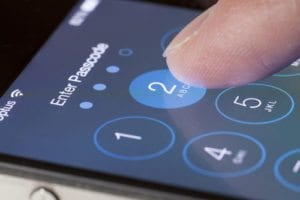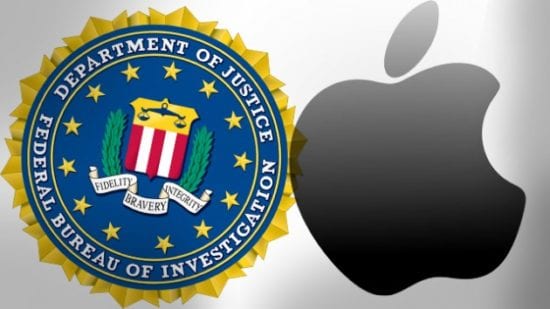The legal battle betw
ATragedy in California
The building tension between the U.S. government and the privacy of the American people goes back to 9/11; however, this particular incident started with a terrorist attack in San Bernardino, California, that killed 14 people and injured 22 more in December 2015. Husband and wife Syed Rizwan Farook and Tashfeen Malik plotted the shooting at a regional center in the city and were killed by police during the attack. The tragedy reignited America’s fear of homeland terrorism and the public demanded action to prevent such a horror from happening again.
The Recovered iPhone
Since Farook and Malik were killed amidst the attack, the only evidence that could help investigators piece together their motives or plan was collected by police and the FBI. The most notable piece of evidence was an iPhone Farook used as his work device. The phone could have held crucial information to help authorities prevent future attacks, but the phone was locked with a passcode, making the information inside inaccessible. The FBI had no other choice but to turn to Apple for help.
Apple’s Master Key
The FBI’s request to Apple for access to the locked iPhone of a known terrorist seemed straightforward. Of course Apple would be eager and willing to cooperate, right? The truth is more complicated. The iPhone is a secure smartphone. It’s designed to be virtually unhackable to the point that even Apple can’t know what’s inside. But the FBI wanted Apple to create a backdoor, a “master key” to allow the law enforcement agency to unlock the phone. CEO Tim Cook refused. The problem with a master key, according to Tim Cook, is that it would create a breach in security for every iPhone in the world. Essentially, the FBI could potentially use this new software to access any iPhone with little to no effort, and Apple did not want that. The FBI took legal action against Apple, hoping to force the company to create the software, but its CEO would not back down.
A Strange Twist in Events
The American public and the courts sided with Apple. The company had no legal obligation to create a loophole for the FBI. Although Tim Cook expressed his deepest sympathies for the tragedy in San Bernardino and emphasized the importance of fighting against terrorism, he felt this wasn’t the path to take. But then something especially strange happened — the FBI was able to hack into the iPhone using a private security agency. After all the public attention and legal process, the FBI accomplished what it wanted without Apple’s help. So why did the FBI want a master key if it didn’t need it? Some people speculate that the FBI was less interested in Farook’s iPhone and more interested in everyone’s iPhone. Even though the FBI was able to crack one phone, it still consumed time, money and resources. A master key would circumvent the effort and give the FBI easy access to any iPhone in the world. Whether or not that intention was true, it does emphasize the importance of digital privacy and just how much of it the American people are willing to exchange in the name of safety.

